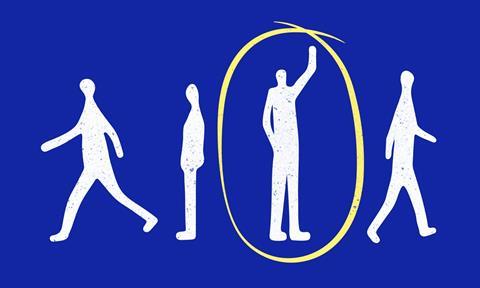Toolbox: leading and managing volunteers and staff

I don’t know if that strikes you as a provocative title or not, but I often see churches focused on ‘what they want done’ over and above ‘who they want to do it’. The thing is, you can adapt and change a job description over time; it can morph and grow with whoever is employed or taking the lead. What changes less is the character and personality of the person who does that role.
This is where the person specification comes in to its own! Whether someone can do the job is only part of the picture, what also needs to be considered is the culture and the context within which they will be working. It is possible to break down a person specification into sections and these give you a ‘shape’ to look out for.
“If you appoint the right person, five years on from now the job will look completely different”
Skills
The skills needed can be hard to define, but are shaped by referring to the job description (which is why both the job description and the person specification need time and thought put in to their construction).
If, for example, part of the core job is ‘leading a Friday night youth club’, then a skill you would be looking for would be: ‘ability to form relationships with young people’.
Now, as well as having a list of skills, you might also want to indicate to prospective applicants whether that skill is essential or desirable. Why do this? Because it is going to be very helpful when you come to interviews and considering who is right for the role. If someone ticks all the boxes for essential and a bunch of the boxes for desirable, then that puts them in the running!
Essential and desirable can also be applied to the other sections that should make up your person specification, such as the ones below.
Knowledge
What do applicants know? What do they need to know? How will you find this out? There is knowledge that is related to the job (again, refer to the job description when compiling this), but there is also what I would call ‘self-knowledge’: how aware is someone of their own strengths and weaknesses? If someone is going to be working as part of a staff team, this is a pretty helpful thing to have.
You might put it down on your list, but finding out will generally be done at interview. For example, you ask the question: “Can you think of a time you have made a mistake in your work, how did you go about rectifying it?” Now, if someone says: “Well, I don’t make mistakes” you can probably jot down ‘lacks self-awareness’, because who doesn’t make mistakes?!
Attitude
What is a person’s disposition? Sometimes this does come across in written applications – an attempt to win you over or moving on from their last place because they are aggrieved about something (you notice from their application and what they have written, this happened in their previous place, and the one before that…).
In a ministry role we are perhaps looking for those who are seeking to lead a Philippians 2 kind of life. Paul writes about the need for us to have the “same attitude of mind Christ Jesus had” (verse 5). Not looking to lord it over other people, not looking for plaudits and praise, but seeking to serve and equip others.
Does someone appear soft or hard hearted? What is their attitude to their own development and growth? Is it: “Ha, you can’t teach me anything. I’ve done it all!” or “I love to learn from others, it helps me to keep growing as a follower of Jesus”?
Experience
This is often a key area. If your job involves growing, developing and initiating new projects, a key thing you want to know is: have they done this before? If the work required is something that someone can learn on the job, then you might be willing to take someone with not much experience. However, they need to score highly in having a teachable attitude.
Also, when it comes to experience, you need to be looking for transferable skills. So, someone who has been a teacher applies for a role. A key part of what is expected is to plan the rotas for the Sunday children’s ministry – I don’t know a teacher that hasn’t had to plan and be organised.
The person specification sits alongside the job description and is very helpful in sifting through applications (let’s assume a massive bag of those arrive!). Which also means the application form you use needs to give space for people to communicate who they are and not just what they have done.
It is perfectly acceptable, if there is a GOR (Genuine Occupational Requirement) that someone is a Christian, to ask in the application form: “How did you come to faith?” or “Tell us something about your faith journey?”
I want to return to the heading. I said at the start, the person is more important than the job description because, if you appoint the right person, five years on from now the job will look completely different. As someone grows, as they are trusted and invested in, what they bring develops and what they can offer increases. Commitment to the flourishing of an individual will get you far more than simply demanding the tasks on a job description are carried out.











































